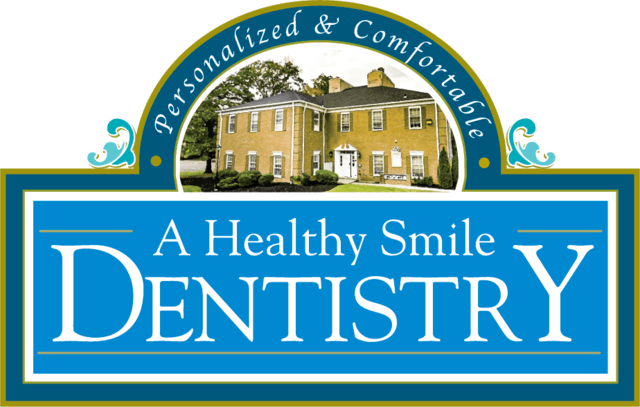Oral health plays a pivotal role in overall well-being, especially as individuals age. With aging, the risk of dental problems increases, ranging from gum disease to tooth loss and oral cancers. Maintaining good oral health is not just about aesthetics or comfort; it significantly impacts nutrition, speech, confidence, and systemic health.
Dental insurance plans become a crucial resource for aging adults, providing financial protection and access to preventive and restorative care. As dental care costs rise, the absence of insurance coverage can lead to delayed treatment, worsening oral health, and increased medical complications.
The Connection Between Aging and Oral Health
Aging brings natural changes to the mouth and teeth. Some common issues include:
- Gum Recession and Periodontal Disease: Gum tissues thin over time, increasing vulnerability to bacterial infection and tooth loss.
- Tooth Decay: Older adults may experience root decay due to gum recession, dry mouth, or medication side effects.
- Tooth Loss: Tooth loss is not inevitable but becomes more likely without proper preventive care.
- Dry Mouth (Xerostomia): Medications for hypertension, diabetes, or depression can reduce saliva production, leading to increased decay risk.
- Oral Cancer: Incidence of oral cancers rises with age, requiring regular dental check-ups for early detection.
Dental insurance plans help manage these risks by ensuring routine visits, early diagnosis, and affordable treatment options.
Financial Benefits of Dental Insurance
One of the most significant advantages of having dental insurance in later life is cost management. Dental procedures such as crowns, dentures, and implants can be expensive. Without insurance, these costs can quickly become burdensome, discouraging patients from seeking necessary care.
Key financial benefits include:
- Coverage for Preventive Care: Most plans cover cleanings, exams, and X-rays, which help prevent more costly issues.
- Reduced Out-of-Pocket Expenses: Insurance plans often share the cost of fillings, crowns, root canals, and other restorative treatments.
- Predictable Healthcare Spending: Fixed premiums and co-pays make it easier to budget for dental care.
Preventive Care and Early Detection
Preventive care is essential for aging adults because it can detect and treat issues before they escalate. Regular dental check-ups covered by insurance can uncover:
- Early signs of cavities and decay
- Signs of gum disease
- Oral lesions or potential cancers
- Bite and jaw problems impacting chewing and speech
Without dental insurance, routine check-ups may be skipped due to cost, leading to untreated conditions that could affect overall health.
How Dental Insurance Supports Specialized Care?
Aging often requires specialized dental treatments. Dental insurance plans facilitate access to:
- Periodontal Therapy: Treatment of gum disease to prevent tooth loss and systemic health complications.
- Prosthodontics: Dentures, bridges, and implants to restore function and aesthetics.
- Endodontic Services: Root canals to save teeth and prevent infections.
- Oral Surgery: Procedures for impacted teeth, cysts, or tumor removal.
Insurance ensures these treatments are more affordable and accessible, reducing the financial and emotional burden on seniors.
Enhancing Quality of Life
Oral health significantly influences the quality of life in older adults. Painful dental issues can restrict eating choices, limit social interaction, and affect confidence. Dental insurance supports:
- Maintaining a balanced diet with proper chewing function
- Preserving speech clarity
- Reducing discomfort and chronic pain
- Promoting self-esteem through better oral aesthetics
Common Challenges in Aging Oral Health
Aging adults face unique dental challenges that make insurance indispensable:
- Medication Side Effects: Many prescription drugs cause dry mouth, increasing susceptibility to cavities.
- Cognitive Decline: Conditions like dementia may reduce daily oral hygiene, increasing the risk of disease.
- Limited Mobility: Physical limitations may hinder regular dental visits unless insurance covers home-based or accessible care options.
- Financial Constraints: Fixed incomes can make costly dental procedures unaffordable without insurance coverage.
Choosing the Right Dental Insurance Plans
Selecting a plan suitable for aging adults requires attention to coverage details:
- Preventive Services: Ensure regular cleanings, exams, and X-rays are included.
- Restorative Coverage: Check if fillings, crowns, bridges, and implants are covered.
- Specialist Access: Confirm access to periodontists, oral surgeons, and prosthodontists.
- Cost Structure: Understand premiums, co-pays, deductibles, and annual maximums.
- Network Restrictions: Consider whether in-network dentists are convenient and accessible.
Integrating Dental Insurance Into Holistic Health Care
Dental insurance should not be viewed in isolation. Oral health is closely linked to systemic conditions such as diabetes, cardiovascular disease, and respiratory infections. By maintaining regular dental care through insurance coverage, seniors can proactively manage risks to overall health.
- Diabetes Management: Periodontal treatment can improve blood sugar control.
- Heart Health: Treating gum disease reduces inflammation, benefiting cardiovascular health.
- Respiratory Health: Healthy gums reduce the risk of infections like pneumonia, particularly in older adults.
Encouraging Consistent Dental Care
Insurance not only reduces costs but also encourages seniors to maintain regular dental visits, which is often the most important factor in preventing age-related oral problems. Strategies include:
- Scheduling semi-annual check-ups covered by insurance
- Utilizing insurance benefits before year-end to maximize value
- Discussing preventive options such as fluoride treatments and sealants with dentists
Conclusion
As individuals age, the complexity and importance of oral health increase. Dental insurance plans play an essential role in protecting oral health, managing costs, and supporting access to both preventive and specialized dental care. By integrating dental insurance into their healthcare routine, aging adults can preserve oral function, comfort, and overall quality of life. Prioritizing dental insurance is not just a financial decision—it is a proactive step toward maintaining long-term health and well-being.

